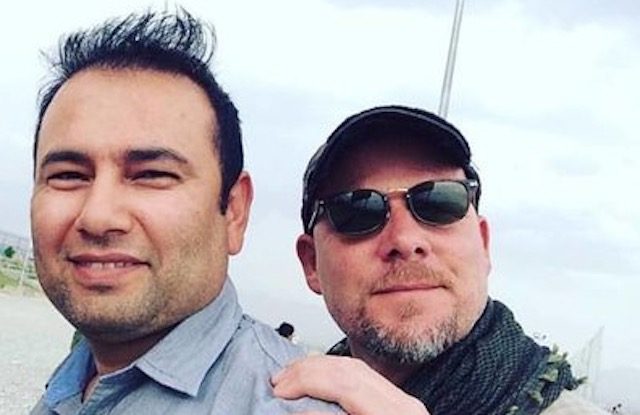SUMMARY
This is AI generated summarization, which may have errors. For context, always refer to the full article.

KABUL, Afghanistan – Accolades poured in Monday, June 6, for veteran American reporter David Gilkey and Afghan reporter Zabihullah Tamanna, who were killed in southern Afghanistan when their vehicle came under Taliban fire, highlighting the growing dangers faced by journalists covering the worsening conflict.
Gilkey and Zabihullah were killed Sunday, June 5, while they were traveling with an Afghan army unit near the town of Marja in the volatile opium-rich province of Helmand.
Two other National Public Radio (NPR) journalists travelling with Gilkey in a separate vehicle, reporter Tom Bowman and producer Monika Evstatieva, were unharmed.
“David has been covering war and conflict in Iraq and Afghanistan since 9/11. He was devoted to helping the public see these wars and the people caught up in them. He died pursuing that commitment,” said Michael Oreskes, NPR’s senior vice president of news and editorial director.
Gilkey’s colleagues responded with shock at the news of his sudden death, the first time in NPR’s 46-year history that it has lost a journalist on a reporting assignment.
One co-worker, Audie Cornish, tweeted that Gilkey was among the company’s “greatest journalists” and his death was “an unimaginable loss”.
Tributes also poured in for Tamanna, who is left behind by a wife and 3 young children, as Afghan journalists gathered outside his house in Kabul to offer condolences.
“We are shocked and saddened by the killing of Zabihullah Tamanna, who loved his job in the media,” said Afghan journalist Abdul Halim, a close friend.
“He wanted to serve his people through journalism.”
A Taliban hotbed, the province of Helmand is almost entirely under the control of the militants, waging a deadly insurgency against the Western-backed Afghan government.
Afghan military spokesman Ahmad Shakil Tasal said Gilkey and Tamanna, who was hired as a translator, were heading to Marja to cover an army operation when they were hit by a Taliban rocket. The Afghan soldier driving the vehicle was also killed.
A gunfight raged for at least 30 minutes before Afghan reinforcements backed by helicopters arrived, ending the Taliban onslaught, added army commander Moeen Faqiri.
Afghan troops recovered the bodies of the dead journalists and transported them to a base in Kandahar, he told Agence France-Presse.
‘Gifted storyteller’
“Even though much of the world’s attention has shifted away, let no one doubt that Afghanistan remains a dangerous place for journalists – local and foreign – working to cover that protracted conflict,” said Bob Dietz, the Asia program coordinator at the Committee to Protect Journalists (CPJ).
“There are too many journalists who have given their lives to tell the Afghan story.”
Prior to the deaths of Gilkey and Tamanna, 24 journalists and one media worker have been killed in Afghanistan since the 2001 US-led invasion, said the CPJ.
“History will remember (Zabihullah) & David as fighters for freedom of information and expression,” Afghan President Ashraf Ghani said on Twitter.
“Those who committed the heinous crime will be remembered as forces of hatred.”
US Secretary of State John Kerry praised Gilkey as a “gifted storyteller”, and paid tribute to “intrepid journalists – and their interpreters – trying to convey that important story to the rest of the world”.
Gilkey received a 2007 national Emmy award for a video series about Michigan Marines in Iraq.
“The things to do were amazing and the places to see were epic,” he once said. “But the people, the people are what made it all worth the effort.”
His photography also helped earn NPR a Peabody Award for its coverage of the Ebola epidemic.
“His coverage in Africa put a face to a disease and refused to let listeners think of the stricken individuals as separate from our own families,” NPR said.
“He made a global story very personal.” – Mushtaq Mojaddidi, AFP / Rappler.com
Add a comment
How does this make you feel?
There are no comments yet. Add your comment to start the conversation.